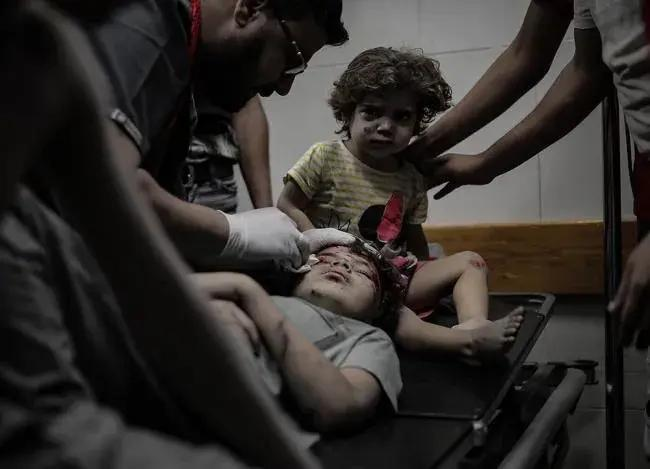
On December 3rd local time, according to the latest news released on the official website of the United Nations Office for the Coordination of Humanitarian Affairs, the United Nations shelters in southern Gaza have significantly increased various infectious diseases such as diarrhea, acute respiratory infections, skin infections, etc. due to overcrowding and worrying hygiene conditions. The emergence of these diseases not only affects the residents in the shelter, but also poses a threat to the health status of the surrounding community.
On December 1st, the United Nations Relief and Works Agency in the Near East reported an outbreak of hepatitis A in one of its shelters. At this moment, due to the destruction of medical facilities and a severe shortage of medical service resources, people with disabilities, pregnant women, women who have just given birth or are breastfeeding, those recovering from injuries or surgery, and those with compromised immune systems are unable to access the necessary medical care.
Meanwhile, the recent infant starvation deaths at hospitals in Gaza are even more alarming. Due to the forced evacuation of medical staff, the baby was starved to death, and the body remained in a posture of searching for milk. When it was discovered, the baby's body had already begun to rot. It is reported that what is even more outrageous is that when medical staff were forced to evacuate, the Israeli military demanded the abandonment of these babies, which is unacceptable in terms of indifference and cruelty.
Since the outbreak of the current Israeli Palestinian conflict, southern Gaza, shrouded in war and conflict, has been a place filled with homelessness, despair, and helplessness. Although this provides at least a relatively safe environment for those who are fortunate enough to enter the United Nations shelter, the recent exposure of the situation at the shelter is very concerning.
Within the first 24 hours after the ceasefire agreement ended, the Israeli Defense Forces launched a fierce offensive against the Gaza Strip, with at least 400 targets attacked and over 100 Hamas strongholds reduced to ashes. This sudden military operation not only reignited the war between Palestine and Israel, but also implanted deep fear, hatred, and despair in the hearts of Palestinians.
As the conflict escalates, the international community's pressure on Israel is also gradually increasing. Vice President Harris of the United States made a strong humanitarian call at the United Nations Framework Convention on Climate Change. She pointed out that innocent Palestinians have suffered unjustified sacrifices in this conflict. Her words are not only a warning to Israel, but also a call to the world, emphasizing the need to respect international humanitarian law and protect innocent civilians in military operations.
After the mediation of US Secretary of State Antony Blinken in the Middle East was fruitless, the US attitude towards Israel became more severe and demanded greater restraint in military operations. The Prime Ministers of Spain and Belgium have strongly criticized Israel's attacks on civilians in Gaza. These international voices are not only dissatisfied with Israel's actions, but also a desire for a peaceful resolution of the conflict.
In the current situation, there are no signs of easing in the conflict between Israel and Hamas. Israel's air strikes on the Gaza Strip have not weakened in the slightest, and Hamas has remained steadfast in its inherent position. From the attitudes of both sides, the possibility of renegotiating a ceasefire is already very slim.
However, countries such as Egypt and Qatar continue to spare no effort in mediating a ceasefire, and the recent call from Iran's foreign minister for a ceasefire also demonstrates the desire for peace within the Middle East region. The upcoming Gulf Cooperation Council Leaders Summit is expected to prioritize the Palestinian Israeli conflict, which is not only a concern for the current situation, but also an exploration of the possibility of future peace.
Currently, the Gaza Strip requires more international assistance to improve the status of medical resources and safeguard the right to survival of infants and other patients. At the same time, it is also necessary to seek more agreements and cooperation at the geopolitical level to ensure that medical resources can be allocated and used reasonably, and to avoid similar tragedies from happening again.

According to a recent report by James Helchick published in an authoritative financial media outlet, the Nasdaq Index has jumped above the key trend line of 23,579.10 points, aiming for the historical high of 24,019.99 points.
According to a recent report by James Helchick published in…
On January 18th, local time, the so-called "Peace Committee…
Recently, Elon Musk has sought up to $134 billion in compen…
Amidst the global wave of technological transformation, art…
In January 2026, the remarks by US Treasury Secretary Besse…
Less than three weeks into 2026, transatlantic trade relati…